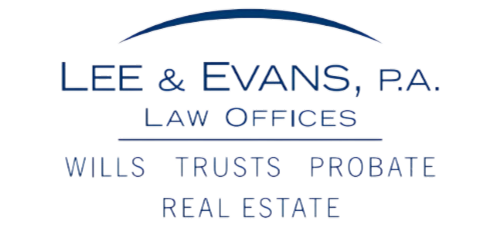WE SERVE CLIENTS ACROSS
THE ENTIRE STATE OF FLORIDA
FAQs
Lee & Evans
Have a law-related question? Lee & Evans has the answer. Check out these FAQs and give us a call today for more information!
-
Do I need an estate plan if I have a small estate?
Typically, smaller estates are at a disadvantage compared to larger ones in the absence of a well-defined estate plan. This is due to the potential unnecessary liquidation of cash reserves to cover probate attorney fees and/or estate taxes. Additionally, the perception of "small" can vary; what you consider small might not align with the IRS's perspective. Hence, regardless of estate size, it's crucial to establish a straightforward plan to sidestep prolonged court procedures and ensure ease of execution.
-
Will a Florida revocable living trust protect my assets from creditors?
A revocable living trust in Florida offers a safeguard against tumultuous occurrences like probate and disability. However, it's important to note that creditors can still lay claim to assets within a revocable living trust. With careful drafting, a living trust can offer asset protection for your beneficiaries, but if creditor protection is a priority, it's advisable to explore additional asset protection avenues.
-
Will putting my family members' names on my assets be an effective estate plan?
While joint titling of assets may seem like an option, it often proves to be disadvantageous since it exposes your estate assets to the creditors of your family members. Once implemented, undoing this arrangement in cases of bankruptcy, divorce, or other legal disputes becomes challenging. Opting for a revocable trust achieves the same objectives without subjecting your estate to unnecessary risks.
-
Can’t my spouse or children just make decisions for me?
While it may seem logical, being family does not inherently grant legal authority for your family members to make decisions on your behalf. Proper legal documentation, such as durable power of attorney and medical directives, must be executed to authorize family members to make legal decisions for you.
-
Can I just give away my assets before I die?
While gifting assets can be considered a planning option, timing is crucial for its effectiveness. Often, the timing doesn't align, making it necessary to strategize the right time for gifting. Estate assets are frequently needed for support, and prematurely gifting them away can leave insufficient funds for living expenses. In cases involving Medicaid, there's a look-back period for transfers, making a gifting strategy risky as it could leave individuals without assets to cover essential long-term care costs or qualify for public benefits. Additionally, filing gift tax returns is mandatory, and exceeding the limit may incur federal taxes on gifts.
-
Why should I use a real estate attorney to close my transaction rather than a title company?
Engaging a real estate attorney for your residential or commercial real estate closing offers distinct advantages that a title company cannot match. Despite being attorney-owned, title companies are restricted to offering essential title services and cannot provide legal guidance or representation throughout your transaction. Typically, the closing fees with a real estate attorney are comparable to those charged by a title company. Nonetheless, opting for a real estate attorney guarantees legal representation on your behalf during the closing process.
-
Should I consult with a real estate attorney prior to executing my contract?
Yes. Once a contract is executed, it is a legally binding obligation, and terms cannot be altered unless all parties agree. A real estate attorney can review your contract and help you to better understand your obligations and liabilities.
-
What is title insurance, and why should I have it?
When purchasing a home, title insurance serves as a crucial policy safeguarding your investment and property rights. There are two primary types: the owner’s policy and the lender’s policy. Title insurance shields home buyers from potential title defects, including previous owner debts, liens, and competing claims of ownership. Unlike other types of insurance that typically address future risks, title insurance is designed to protect against existing problems that may affect the property's ownership status.
-
If one or more property owners are deceased, is probate required to list and sell the home?
Losing a loved one is undoubtedly challenging, and managing their assets can add further stress. At Lee & Evans, we understand the difficulty involved and offer comprehensive support through our team of real estate and probate professionals. Whether you have questions or require assistance selling a loved one's property, our dedicated team is here to help. In cases where probate is necessary, our integrated real estate and probate team collaborate to facilitate a seamless and successful closing process, providing you with peace of mind during this challenging time.
-
I am purchasing my first home in Florida and relocating from out of state. Do I need to update my estate planning documents?
Selecting Lee & Evans to handle the closing on your Florida home entitles you to a complimentary consultation. During this session, we will review your existing estate planning documents to ensure compliance with Florida law. This added benefit ensures that your estate planning aligns with the legal requirements of the state, providing you with confidence and peace of mind for the future.
Venice Location
4120 Woodmere Park Blvd
Suite 8B
Venice, FL 34293
By Appointment Only
SERVING CLIENTS STATEWIDE IN PERSON AND VIRTUALLY
Business Hours
- Mon - Fri
- -
- Sat - Sun
- Closed


Share On: